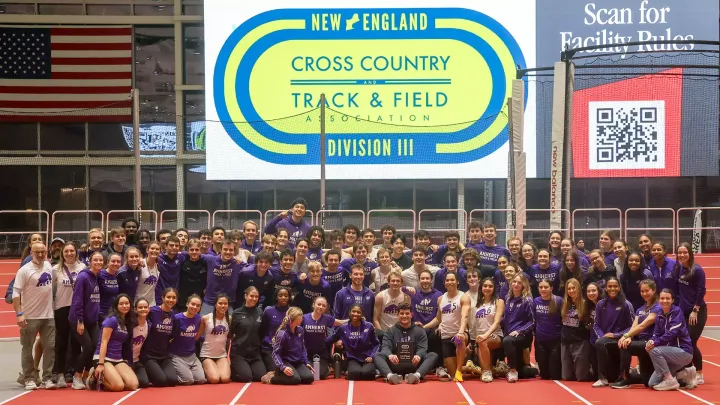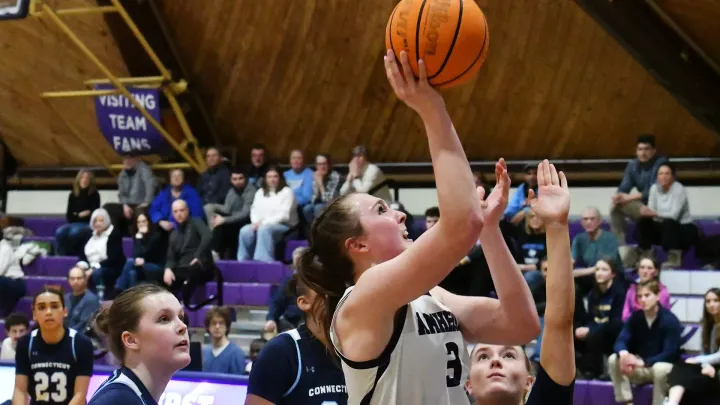Brown Announces Proposed Settlements Over Varsity Sports Cuts
On Sept. 17, Brown University announced a proposed settlement with the women student-athletes who challenged the school’s May decision to re-designate five women’s varsity teams as club sports, which included the women’s fencing, equestrian, golf, squash and skiing teams. Under the proposed settlement, the university would restore the varsity status of the fencing and equestrian teams. The agreement also outlines the end to a two-decade old legal agreement regarding gender equity.
The May cuts also included six varsity men’s teams — although track and cross country were reinstated in June. This Excellence in Brown Athletics Initiative, as the university titled it, aims to increase the competitiveness of Brown’s varsity teams, which have won the fewest Ivy League titles across all varsity sports in the last decade, by reducing the total number of varsity teams.
The proposed settlement with the women varsity athletes also sets an August 2024 end date to a 1998 joint agreement in Cohen v. Brown, a Title IX case which established a maximum 2.25 percent difference between the percentage of female varsity athletes and the percentage of female full-time undergraduates in an effort to ensure gender equity in varsity sports at the university. A statement from Brown characterized the Cohen agreement as “a significant obstacle to the university’s ability to offer women’s and men’s teams the competitive experience athletes deserve and expect.”
The settlement comes after an ACLU-supported motion in June to enforce the 1998 Cohen agreement, which a class of plaintiffs composed of women varsity athletes from Brown argued would be violated after the May cuts and subsequent restorations. The motion asserted that, based on 2019-2020 figures for enrollment and varsity team membership, the restoration of men’s varsity track and cross country would have surpassed the maximum 2.25 percent variance established by the Cohen agreement. Brown had announced the addition of both a varsity women’s and coed sailing team, which they claimed would fulfill the requirement. However, the plaintiffs’ motion argued that this action was not enough to demonstrate compliance with the Cohen agreement, as the numbers were based only on projections. The reinstatement of women’s fencing and equestrian under the proposed settlement would meet the 2.25 percent limit set by the 1998 agreement.
When the agreement expires in 2024, Brown will no longer be held to the 2.25 percent limit, although they must continue to comply with Title IX, which prohibits sex-based discimination in federally-funded educational institutions. The U.S. Department of Education Office for Civil Rights has mandated that schools must offer athletic opportunities to men and women that are proportionate to male and female enrollment in order to comply with Title IX. While there is some variation in interpretations of proportionality, Brown has agreed to not eliminate any women’s varsity teams or add any men’s teams for at least the next four years.
“We are very pleased with the settlement,” said Brown President Christina H. Paxson in a news release. “The Cohen agreement served an important purpose when it was signed 22 years ago, but Brown’s commitment to women athletes transcends the agreement. We can provide excellent athletics opportunities for women and men, be a leader in upholding Title IX and have a competitive varsity program. And we will.”
In a statement, Lynette Labinger, lead counsel for the women student-athletes, said, “This is a bittersweet outcome, because of the reality that, if Brown was determined to shrink the size of its athletic program, we could not stop it and save all five of the women’s teams.”
“We support the settlement because we believe that it will both preserve gender equity and maximize the athletic opportunities for Brown’s women athletes now and in the future,” Labinger continued.
The settlement has been given preliminary approval by a federal judge, and plaintiffs will have until Nov. 24 to raise any objections. A hearing has been scheduled for Dec. 15 regarding whether to approve the settlement. Provided that the settlement is approved, as appears likely, the Brown women’s fencing and equestrian teams will compete at the varsity level when the Ivy League, which canceled fall competition due to Covid-19, returns to play.
From a broader perspective, the challenge to Brown’s cuts and the subsequent proposed settlement come at a time when discrimination and equity are at the forefront of the American consciousness. Now, more than ever, it is vital that our colleges and universities demonstrate their commitment to providing equal opportunities for students of all backgrounds, in athletics and beyond.





Comments ()